ASV 2025 Election Candidate Guide
Candidates for President-Elect
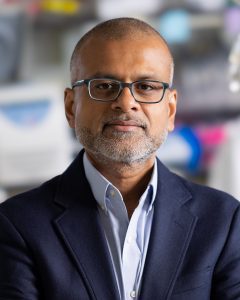
Albert Einstein College of Medicine
Professor of Microbiology and Immunology
Gertrude and David Feinson Chair in Medicine
Harold and Muriel Block Faculty Scholar in Virology
Degree: University of Wisconsin-Madison, 2001
Description of my research
Emerging viruses, viral entry, antiviral vaccines and immunotherapeutics
My lab focuses on understanding the molecular warfare between viruses and cells and using this knowledge to advance antiviral countermeasures and enhance pandemic preparedness. We study many enveloped viruses, including filoviruses, bunyaviruses, coronaviruses, and poxviruses. Our key accomplishments include the discovery of a novel endosomal proteolytic cascade required for filovirus entry and critical entry receptors for filoviruses and hantaviruses. In 2019, I helped create Prometheus, an NIH-funded Center of Excellence in Translational Research (CETR) to develop antibody therapeutics against filoviruses and bunyaviruses. A signal accomplishment of Prometheus is the development of a pan-ebolavirus antibody cocktail, for which a human Phase I clinical trial was recently completed. In 2024, I helped create PROVIDENT, an NIH-funded ReVAMPP center comprising an international group of scientists from academia, industry, and government whose goal is to establish and pre-position optimized platforms for the development of vaccines and antibody-based therapeutics against three major groups of emerging enveloped RNA viruses.
Reason for Running
ASV has played a formative role in my development as a virologist throughout my career—as a graduate student, postdoctoral fellow, and an independent investigator—and it continues to be vital to my trainees. I look forward to working with the Council to maintain ASV’s central role in U.S. virology research, to communicate the importance of our work to the lay public and other stakeholders, and to help our organization and community navigate the new challenges that we are facing as our nation and the world adjust to the post-COVID landscape.
Past ASV Service
State-of-the-Art Speaker: 2012
Annual Meeting Workshop Convener: 2013
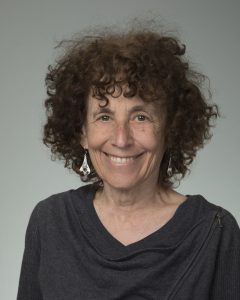
Perelman School of Medicine, University of Pennsylvania
Professor and Vice Chair, Department of Microbiology
Director, Center for Research on Coronaviruses and Other Emerging Pathogens
Degree: Harvard University, PhD 1976
Description of my research
Coronavirus replication and pathogenesis; host virus interactions, OAS-RNase L pathway, viral and host double-stranded RNA
I have worked on many aspects of coronavirus replication and pathogenesis over the last four decades, making contributions to understanding the basic biology as well as viral entry, organ tropism and virulence. My lab group had focused for many years on the murine coronavirus (MHV) mouse model of hepatitis and CNS disease and more recently shifted toward the human coronaviruses, MERS-CoV, SARS-CoV-2, and the “common cold” coronaviruses, 229E and NL63. For the last ten years, we have worked on coronavirus interaction with the host innate immune response, viral antagonists of double-stranded RNA induced antiviral pathways and interactions with the unfolded protein response pathways. Since the beginning of the pandemic, we have used a primary nasal epithelial culture model to mimic the earliest site of infection and compared infections with highly pathogenic and common cold human coronaviruses. We found that interferon signaling responses are temperature dependent and variable among the coronaviruses and are largely responsible for the viral clearance (cold viruses) or persistence (lethal viruses). My other research interests include activation and antagonism of the double-stranded RNA induced antiviral responses, in particular the oligoadenylate-ribonuclease L (OAS-RNase L) pathway, Zika-virus-host interactions and pathogenic effects of host endogenous dsRNA.
Reason for Running
I have been working in the field of virology for more than forty years. I have been attending ASV meetings beginning with the intial meeting at Cornell in 1982 and before that attending ASM meetings, having been a member since 1974. Thus, I have a thorough overview of how the field of virology has developed over decades as well as an extensive knowledge of coronaviruses and other viruses. Since the beginning of the pandemic, I have used this knowledge to present numerous seminars (more than 90), to participate as a speaker and panelist at National Academy of Sciences, National Academy of Medicime and ASM events and to talk to journalists [interviews on This Week in Virology (TWIV) and NPR Radio Times] and community groups to educate on the history and biology of coronaviruses and demystify the emergence of SARS-CoV-2. I have had administrative experience through my current role as Vice Chair of the Microbiology Department and Director of the Center for Research on Coronaviruses at Penn, and Governor of AAM as well as past service as Associate Dean for Postdoctoral Training and as a member of the steering committee of the GREAT Group of the American Association of Medical Colleges Postdoctorate section. This along with mentoring many graduate students and postdocs in my lab, has given me extensive experience and insight into the issues facing trainees in virology. I have served several terms on NIH study sections and Journal editorial boards, currently serving an an Associate Editor for Fields “Virology” and on the Editorial Board of PNAS. Going forward there will be challenges facing the field of virology including skeptics critical of important virology research as well as funding from NIH. If elected as ASV president, I feel I would be in an excellent position, connected to ASV as well as ASM and NAS, to represent the needs and ideas of virologists.
Past ASV Service
ATCC Advisory Committee Member: 2004 -2005
Program Committee Member: 2007 - 2009
Annual Meeting Workshop Convener: 2006, 2013
Symposium Speaker: 2013
Candidates for Medical Virology Councilor
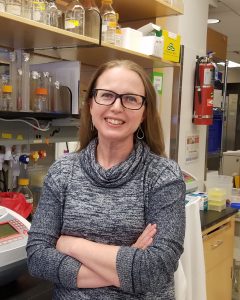
University of North Carolina at Chapel Hill School of Medicine
Department of Microbiology & Immunology
Associate Professor
Degree: University of Pennsylvania, 2009
Description of my research
Research interests: viral pathogenesis, arboviruses, neurovirology, innate immunity
The Lazear Lab studies viral pathogenesis, including herpes simplex virus and mosquito- and tick-borne flaviviruses. We are interested in the effects of interferon lambda (IFN-λ) at anatomic barriers, including the skin, blood-brain barrier, and maternal-fetal interface, and the viral and host factors that control flavivirus tissue and species tropism. More information about the Lazear Lab: www.lazearlab.org
Reason for Running
I am running for the position of Councilor for Medical Virology because I recognize the important role ASV plays in sustaining, developing, and advocating for the field of virology and I want to contribute to keeping ASV strong. My broad interests in viral pathogens (including arboviruses and herpesviruses) make me well-suited to represent the medical virology field. On council, I hope to build on my previous involvement with ASV and to serve ASV members and the virology community.
Past ASV Service
Program Committee Member: 2019-present
Annual Meeting Workshop Convener: 2015, 2016, 2018, 2019, 2020 (virtual), 2021 (virtual), 2022, 2023
Satellite symposium organizer: 2023 (“Tick-borne viruses: vector, host, and virus interactions”)
Satellite symposium speaker: 2024
State-of-the-Art speaker: 2022
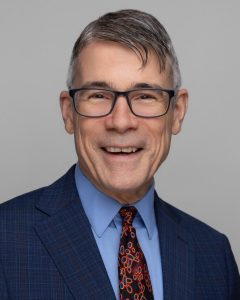 University of Wisconsin - Madison
University of Wisconsin - Madison
School of Medicine and Public Health,
Professor of Pediatrics
Degree: MD, Virginia Commonwealth University 1994
Description of my research
The lab’s major area of research is the immunity and pathogenesis of human metapneumovirus (HMPV), a leading cause of acute lower respiratory tract illness in infants and children worldwide. HMPV causes severe and fatal disease in high-risk individuals, including premature infants, transplant recipients, older adults, and persons with chronic cardiopulmonary disease. We have a comprehensive program of HMPV research including basic and translational components. We published molecular epidemiology studies establishing the importance of HMPV, in the process isolating dozens of field strains collected over twenty years. We use in vitro and mouse models to study immunity and pathogenesis. We have discovered that HMPV and other acute respiratory viral infections cause impairment of lung CD8+ T cells via PD-1 signaling, a pathway previously associated with chronic infections and cancer. Active projects include: Host and viral determinants of pathogenesis; mechanisms by which HMPV and other respiratory viruses lead to impaired pulmonary CD8+ T cells; and HMPV inhibition of type I and type III interferon responses.
Reason for Running
As a practicing clinician and virologist, I seek to stimulate continued interest in medical virology and support young virologists in the field.
Past ASV Service
Symposium Speaker: 2017
Education Committee Member: 2012 - 2015
ASV Discussion Table Host: 2012 - 2015
Annual Meeting Workshop Convener: 2012
Candidates for Veterinary Virology Councilor
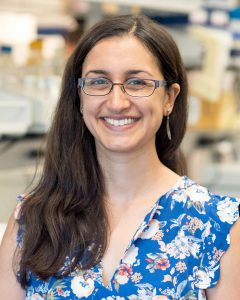
Virginia Tech, College of Veterinary Medicine
Department of Biomedical Sciences and Pathobiology
Associate Professor
Degree: University of Washington, 2012
Description of my research
My research focuses on the transmission and pathogenesis of emerging zoonotic arboviruses. We study flaviviruses such as West Nile virus, Usutu virus, and St. Louis encephalitis virus that are maintained in an avian reservoir. We are interested in understanding how these viruses adapt to birds and mosquitoes during emergence in new geographic areas and how they cause neuroinvasive disease in humans. We also study Zika virus, with a focus on investigating how this mosquito-borne virus has acquired a novel transmission mechanism of sexual transmission. Our work uses diverse animal models including birds, mosquitoes, and mice.
Reason for Running
I am running for a position as the ASV Councilor for Veterinary Virology in order to contribute to the fantastic virology community that has been an integral part of my own training, as well as the students and trainees in my lab. My lab looks forward to attending the ASV Annual Meeting each year. My own research investigates viruses that infect wildlife, and I am broadly interested in understanding how zoonotic viruses interact with their animal hosts. As ASV Councilor, I will advocate for veterinary virologists through policy and symposiums within the annual meeting.
Past ASV Service
Program Committee member: 2024 – present
State-of-the-Art speaker: 2024
Workshop convener: 2022, 2023
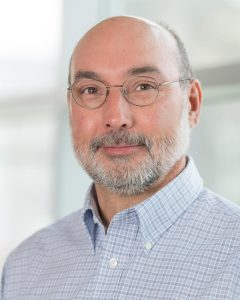
Colorado State University
College of Veterinary Medicine and Biomedical Sciences
Department of Microbiology, Immunology and Pathology
Professor
Degree: Kansas State University, 1996
Description of my research
My research focuses on the virology and immunology of reservoir hosts of zoonotic viruses. Our principal animal models are bats and peromyscus rodents from closed breeding colonies, in which we conduct experimental infections with coronaviruses, influenza A viruses and paramyxoviruses. We are particularly interested in T cell responses and have developed a number of novel methods for assessing such responses in these non-model organisms.
Reason for Running
The COVID-19 pandemic has shown that the study of wild animals, both vertebrates and invertebrates, and the viruses they harbor is a critical part of public health. Unfortunately, due to the substantial amount of mis- and disinformation regarding virology field and laboratory research, virology in general – and many virologists in particular – has been vilified by certain groups and individuals. I believe that strong voices of support for virology are required to counter this and that ASV is the most important organization to do so. Its leadership should have strong voices in advocating for more virology research – not less – and vigorously defending our efforts to engage those who may minimize the risks zoonotic spillover. These efforts should focus on engagement of not just funding agencies, but also the press and legislative bodies.
Past ASV Service
Program Committee Member: 2017 - 2020
Travel Award Committee Chair: 2016
Travel Award Committee Member: 2014 - 2016
State-of-the-Art Speaker: 2014
Annual Meeting Local Organizing Committee Member: 2014
Candidates for Virology Trainee Councilor
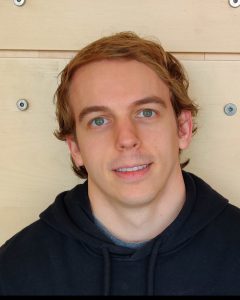
University of California, Los Angeles
Senior Research Associate
Degree: Cornell University, 2022
Description of my research
My research focuses on the intersection of virology and immunology, with a particular emphasis on understanding viral mechanisms and host-pathogen interactions. I investigate how viral proteins mediate infection, immune evasion, and disease progression, aiming to uncover fundamental insights that can drive the development of innovative therapeutic and diagnostic strategies. Additionally, my work explores the broader implications of viral activity in biological and environmental contexts, contributing to a foundational understanding essential for addressing emerging and re-emerging infectious diseases. By combining molecular virology with translational approaches, I strive to advance the field of virology and immunology while addressing critical global health challenges.
Reason for Running
I am running for a position on the ASV Council to contribute to the growth and impact of virology as a discipline, with a particular focus on fostering collaboration between academia, industry, and global health organizations. My extensive experience in high-biosecurity research, vaccine development, and mentoring emerging scientists equips me to represent diverse perspectives and champion initiatives that empower early-career virologists. I am passionate about enhancing the visibility and societal relevance of virology research, ensuring that our collective efforts address urgent global health challenges while inspiring the next generation of virologists.
Past ASV Service
ASV Member: 2022 - Present
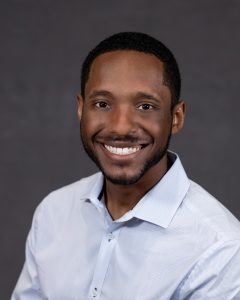
University of Arizona
Postdoctoral Researcher
Degree: University of Arizona, 2024
Description of my research
I am largely interested in virus-host interactions, persistent viruses, DNA replication & repair, genomics, proteomics, and cell biology.
Human cytomegalovirus (HCMV) is a herpesvirus that infects a majority of the global population, causing disease and mortality in immunocompromised individuals. There is no vaccine, and antivirals are ineffective against latent virus. My research aims to define how HCMV commandeers the host DNA damage response during replicative and latent infections. Our studies have revealed that, despite encoding a DNA polymerase for genome synthesis, HCMV hijacks specialized host DNA polymerases to ensure viral genome integrity. We have pinpointed a viral determinant of latency as a key regulator of host DNA repair proteins important to the control of virus replication and genome stability. Ongoing studies seek to determine how host protein specific mechanisms of host protein recruitment to and repair of viral genomes. Finally, we are investigating how host DNA repair proteins influence the response to antiviral therapies.
Reason for Running
Virology is an essential discipline that provides us with an understanding of some of the pathogens that shape our world while also allowing us to make discoveries about our own biology and that of the world around us. The American Society for Virology (ASV) is a critical nucleus for the field in driving our understanding of virus evolution, infection, and disease forward. I recently completed my doctoral training in virology at the University of Arizona under the mentorship of Dr. Felicia Goodrum. My research focused on the intricate virus-host interactions involved in human cytomegalovirus (HCMV) infection. I explored how HCMV manipulates its host’s DNA replication and repair machinery to switch between latent and replicative states. Beyond my research, I witnessed the importance and impact of engaging in the broader field through the energy and leadership that Dr. Goodrum brings to ASV and virology.
As a Black, LGBTQ, first-generation college student, I have faced significant challenges in navigating academia, particularly due to a lack of mentors with shared experiences. However, my involvement with ASV has been transformative, providing me with a vital sense of belonging and support in this field. Through attending workshops and panels and serving on the DEI Panel on LGBTQ+ Allyship in Virology at the 2023 ASV meeting, I have built a robust network of peers and mentors within the ASV community. Further, throughout my graduate studies, I led Colors of STEM, an initiative designed to foster community and provide personal and professional development for students of color in STEM fields. As I continue my journey in virology, I am deeply committed to uplifting fellow trainees. As Councilor for Virology Trainees, I will leverage my experiences to advocate for individuals from diverse backgrounds, enhancing trainee visibility and creating equitable opportunities for mentorship, personal growth, and career advancement in virology. My goal is to ensure that all trainees feel supported, represented, and empowered to thrive in their academic and professional pursuits.
Past ASV Service
ASV Member: 2021 - Present
Panelist, DEI Panel on LGBTQ+ Allyship in Virology: 2023 (ASV Meeting, Athens, GA)
